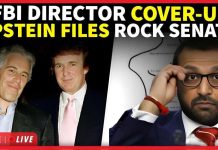
CNN’s use of the historically loaded phrase “Big Lie” to describe President Trump’s election fraud claims has been ruled as protected opinion—not defamation—by the Eleventh Circuit, spotlighting the judiciary’s powerful shield for media speech even when it sharply targets conservative leaders.
Story Snapshot
- Eleventh Circuit affirms dismissal of Trump’s defamation lawsuit against CNN over “Big Lie” coverage.
- The court ruled that CNN’s language was opinion, not a provably false factual statement.
- Decision reinforces a high legal bar for public figures seeking to challenge negative media portrayals.
- Case highlights how political speech and media commentary test the limits of constitutional protections.
Court Shields Media Opinion in Trump’s Defamation Case
The Eleventh Circuit Court of Appeals has upheld the dismissal of President Trump’s defamation lawsuit against CNN, rejecting his claims that the network’s repeated use of “Big Lie” to describe his 2020 election fraud allegations amounted to actionable defamation.
The court determined that such language, while controversial and evocative, constitutes opinion in the context of political commentary. As a result, media organizations retain broad latitude to employ charged or even offensive labels when covering public figures, as long as their statements are not provably false factual assertions.
Historical Weight of the “Big Lie” in Political Reporting
The origins of the term “Big Lie” trace back to Nazi propaganda, where it referred to the tactic of repeating a colossal falsehood until it is accepted as truth. By adopting this phrase in coverage of President Trump’s post-2020 election claims, CNN and other outlets drew a pointed historical parallel that Trump argued unfairly linked him to the atrocities of the past.
However, the courts concluded that, in modern American political discourse, using such loaded language has become a form of subjective commentary—one that is protected by the First Amendment rather than punishable as defamation.
Legal Precedent and the High Bar for Defamation by Public Figures
The case underscores the formidable obstacles facing public figures like President Trump when challenging media narratives. Decades of Supreme Court precedent have established that opinion, particularly on matters of public concern, is not actionable as defamation.
Past cases, such as those involving the use of labels like “fascist” or “radical right,” have been found to be unverifiable and therefore shielded from legal retaliation. The ruling in Trump’s case reaffirms this boundary, signaling that even hyperbolic or historically charged rhetoric remains protected in political debate.
Implications for Conservatives and Constitutional Speech Rights
For conservatives frustrated by relentless media attacks and the erosion of traditional values, this ruling serves as a sobering reminder of the power imbalance: legacy media outlets can deploy rhetoric that stigmatizes leaders and movements without facing legal consequences, provided their statements are couched as opinion.
While this reinforces First Amendment protections—a cornerstone of American liberty—it also means that countering biased narratives must occur in the court of public opinion, not the courtroom. The judiciary’s stance may embolden further aggressive reporting and escalate the challenge of defending conservative reputations in an increasingly polarized media environment.
Broader Impact on Political Speech and Media Accountability
The decision effectively closes the door on Trump’s legal avenues in this matter unless the Supreme Court intervenes, and it sets a precedent likely to deter similar lawsuits from public figures in the future.
Media organizations now operate with even greater clarity regarding their editorial freedom, while conservative audiences are left to grapple with a press landscape where partisan language faces little legal restraint. This outcome will influence how both politicians and journalists navigate the boundaries of robust debate, criticism, and the protection of constitutional rights.
Sources:
Eleventh Circuit Opinion: Trump v. CNN (2025)











